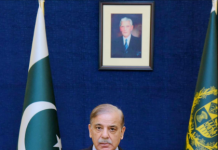ISLAMABAD, Aug 02 (APP): Public health advocates in Pakistan are warning against a proposed change to tobacco regulations that could harm the nation’s youth.
The amendment would allow the production and export of 10-stick cigarette packs, which experts believe could undermine efforts to control smoking.
Currently, Pakistani law requires cigarette packs to contain at least 20 sticks. This rule helps limit tobacco access for minors and reduce smoking among young people. Smaller 10-stick packs, however, would be cheaper and more accessible, especially to adolescents. Such packs could be sold secretly or through informal channels, increasing the risk of youth smoking. With about 1,200 new young smokers daily in Pakistan, this change could worsen the situation by making it easier for young people to start smoking earlier, thus weakening current tobacco control efforts.
Mehboob Ul Haq, CEO of the Human Development Foundation (HDF), highlighted the issue: “We must protect our children from tobacco’s harmful effects. Smaller cigarette packs make tobacco more affordable and accessible to underage individuals. With 166,000 tobacco-related deaths annually, banning these packs is crucial to curb tobacco use and prevent diseases and deaths.”
The tobacco industry’s plan to export these smaller packs to Sudan, a country already suffering from conflict, raises additional concerns. Introducing 10-stick packs in war-torn areas like Sudan could make tobacco more accessible to vulnerable children facing instability and a lack of resources.
Arooj Rajput, the focal person for HDF’s tobacco control campaign, added, “The proposed amendment endangers not only our youth’s health but also ignores our global responsibility to protect children everywhere. Every child, whether in Pakistan or Sudan, deserves protection from the tobacco industry’s harmful practices.
Pakistan has made significant progress in tobacco control, and allowing the production and export of 10-stick packs would harm these efforts and damage our international reputation in public health. It is vital that the country upholds strong tobacco control measures to protect its citizens and show commitment to global health standards.”
Concerned citizens and public health organizations are urging the Ministry of National Health Services, Regulations, and Coordination to reject the proposed amendment and maintain current regulations that protect the youth and uphold ethical standards in tobacco control.
“It is worrying that the Ministry does not see the negative impact this amendment could have on our youth,” said Ms. Arooj. “We call on the public and the media to raise this issue with the Ministry, ensuring that the health and well-being of Pakistan’s youth are safeguarded.”














